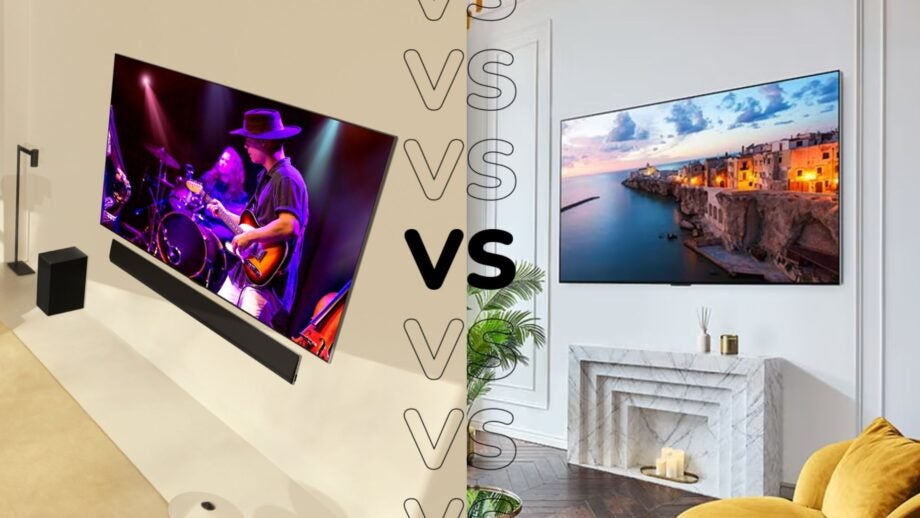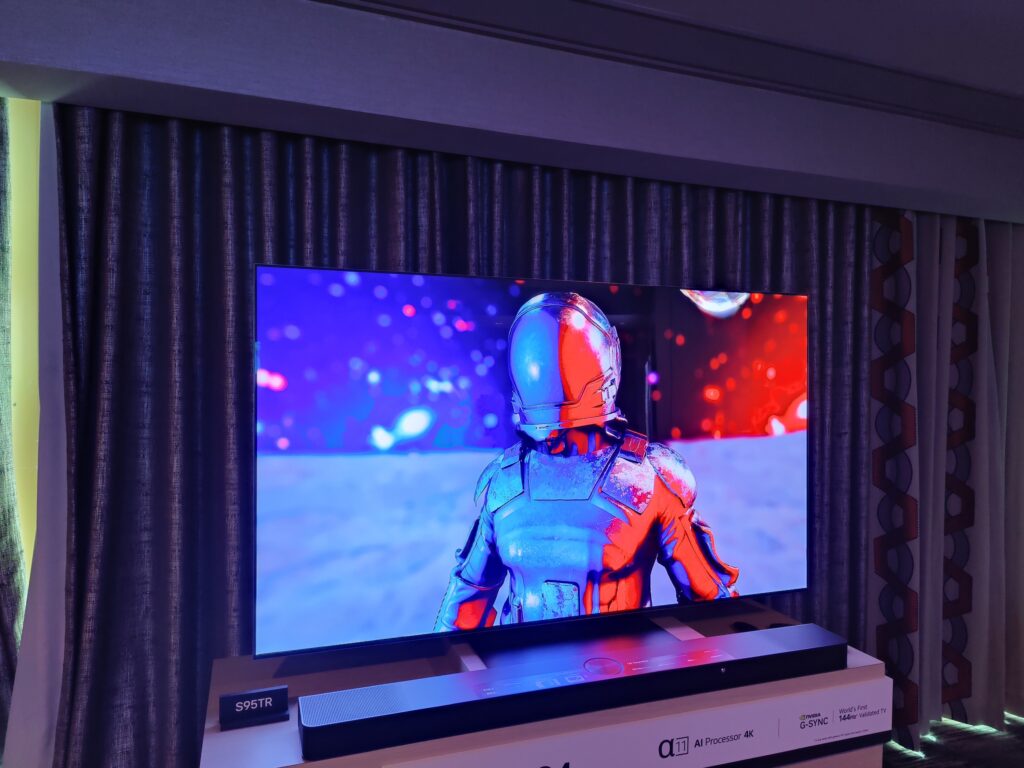LG OLED G4 vs LG OLED G3: Which premium OLED TV is worth buying?

The new refresh for LG’s G-series TVs, the LG OLED G4, was just announced at CES 2024, but how does it stack up against last year’s LG G3? Let’s find out.
Just like clockwork, LG has taken to the stage at CES to unveil its entire 2024 line-up of TVs, with several highlights including the nearly all-wireless LG OLED M4, and the transparent (yes, you read that right) LG Signature OLED T. For those who simply want a high-end viewing experience without any gimmicks, the new LG G4 will be the one to go for.
Still, as impressive as the G4 appears to be, it’ll have a tough job on its hands of upstaging the already brilliant LG G3, and if you’re looking to upgrade to a premium set but aren’t sure which one to go for then here are the key differences you need to know.
The G4’s AI processing is next-level
Having an updated and somewhat faster chipset has long been a staple of any new LG TV, but for the G4, LG seems to be highlighting a far greater leap in technology. According to LG, the new Alpha 11 chipset (found inside the G4 TV), can achieve a 70% increase in graphical performance and a whopping 30% faster processing speed over the G4.
AI upscaling has been a staple feature of LG’s OLED TVs for some years now but with that amount of processing power supposedly available, it seems as if the G4 will be able to run rings around its predecessor. This is huge if you enjoy watching classic cinema or even old home movies regularly, as the added power will go a long way towards making them look better than ever.

The newer TV boasts virtual 11.1.2 surround sound
In almost every way, the LG G3 was an absolute stunner, and thanks to its significantly brighter OLED panel there was very little to leave you wanting where the display was concerned. Audio quality on the other hand was a different story, and our review noted that in order to make the most out of the set, you couldn’t really rely on the G3’s built-in speakers – an added soundbar was a must.
LG seems to have taken that criticism head on as the G4 can now achieve a virtual 11.1.2 surround sound channel. That’s a huge improvement over the 9.1.2 configuration from the G3, and it could be just the uptick needed to make the default speaker system far more complementary to the rest of the TV’s high-end tech.
There’s a new size available for the G4
If you’re asking us, 83-inches – which is the largest model available for the G3 – is more than enough for most people, arguably too much. Apparently LG seems to disagree as the G4 will now also be available in an even bigger 97-inch variant.
How anyone is expected to fit a 97-inch display into your average living room is beyond us, but it’s clear that LG is leaning heavily into the idea that the LG OLED G4 is a luxury product, and so for anyone who’s serious about creating a home cinema (and doesn’t want to faff around with installing a projector), the G4 could be the new go-to option.
Early verdict
The one key aspect (aside from a release date) that we don’t currently know is the pricing for the LG OLED G4. Until we know exactly how much this thing will cost, it’s difficult to draw any conclusion, particularly as the LG G3, by way of being on the market for some time, could no doubt be found with a discount or two attached by the time the G4 arrives.
Still, there’s no denying that the AI upscaling power of the G4 could put LG’s more recent TV into a new stratosphere, and that’s before mentioning the much needed upgrades to sound quality. Even for those with just a passing interest in home entertainment, 2024 is already shaping up to be a very interesting year for TVs indeed.








